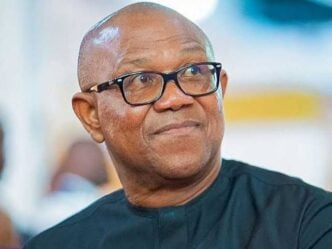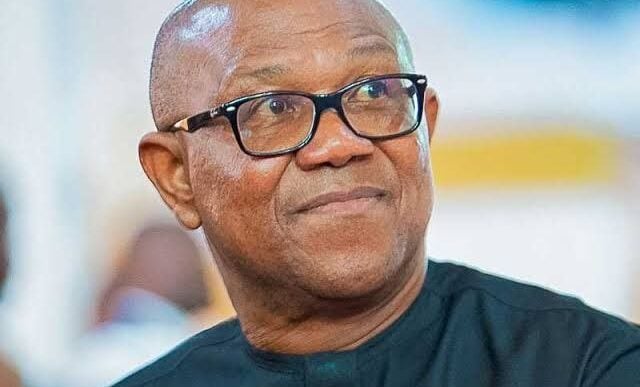The Edo state governorship tribunal has affirmed Monday Okpebholo, as the duly elected governor of the state in the election held on September 21, 2024.
Delivering judgment on Wednesday, a three-member panel of the tribunal led by Wilfred Kpochi, held that the Peoples Democratic Party (PDP) and its candidate, Asue Ighodalo, failed to prove the allegations against the respondents.
The tribunal held that “no competent witnesses were called” to prove the averments in their petition.
BACKGROUND
Advertisement
The Independent National Electoral Commission (INEC) had declared Okpebholo, candidate of the All Progressives Congress (APC), as winner of the election.
Okpebholo polled 291,667 votes to defeat his closest challenger, Ighodalo of the PDP, who got 247,274 votes.
Olumide Akpata, candidate of the Labour Party (LP), finished a distant third with 22,763 votes.
Advertisement
Ighodalo and PDP had approached the tribunal to challenge the outcome.
The petitioners had told the court that the governorship election was invalid because of alleged non-compliance with provisions of the Electoral Act 2022.
They prayed the court to nullify the declaration of Okpebholo as winner on the basis that the election was allegedly marred by irregularities.
TRIBUNAL JUDGMENT
Advertisement
However, in its judgment, the tribunal held that the petitioners failed to establish why the outcome of the election should be set aside.
It held that the burden of proving that the election was marred by irregularities rests solely on the petitioners.
The panel said it was trite law that a petitioner must succeed on the strength of his own case and not on the weakness of the defence.
Although the tribunal noted that the petitioners were very detailed in chronicling the wards and polling units where the alleged infractions took place, they merely dumped exhibits on the court without speaking or demonstrating them through competent witnesses as required by the law.
Advertisement
It held that most of the witnesses who testified for the petitioners gave hearsay evidence, noting that they were neither polling unit agents, presiding officers, or voters who participated in the election or polling units.
The tribunal further held that none of the bimodal voter accreditation system (BVAS) machines tendered by a witness who was subpoenaed were switched on to demonstrate that the number of votes recorded in the disputed polling units exceeded the accredited voters.
Advertisement
The court also said the petitioners failed to tender the voter register, adding that the forms EC8A tendered were downloaded copies and not original copies.
“It is clear that items needed to prove over-voting are voters register, BVAS machines and Form EC8A,” the tribunal held.
Advertisement
It further held that the petitioners failed to prove their allegation that INEC did not substantially comply with provisions of the Electoral Act during the conduct of the election.
The tribunal held that even if it deducted the votes the petitioners alleged were unlawfully credited to the APC, Okpebholo would still be the winner of the election.
Advertisement












